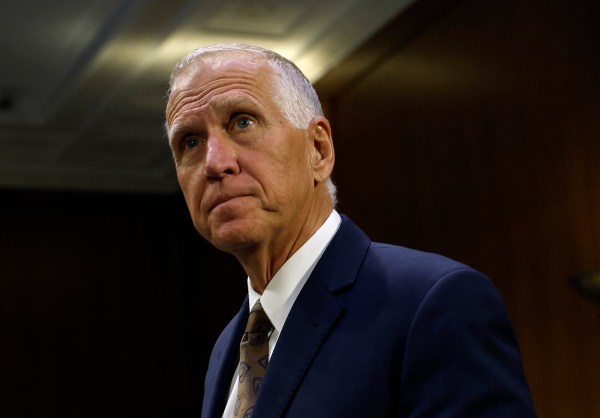Hello and happy Saturday. While I hope everyone takes advantage of the long weekend to enjoy good weather and time with family and friends as we unofficially kick off summer, I also hope everyone can take a moment to remember that Memorial Day commemorates those who gave their lives so we can enjoy the freedoms we have.
As an adult, I’ve always been grateful that I had a classic, quintessentially American, small-town childhood. (I say “as an adult” because as a kid, I could not wait to get the heck out of dodge.) I walked to school, played outside or swam at the pool all summer, and cruised the main drag with my friends when we were old enough to drive. Imagine a cross between a Norman Rockwell painting and a Brat Pack movie set in the Rust Belt.
I lost a part of that childhood this week. On Monday, my parents texted me a photo someone had sent them of a lonely little shed, surrounded by some debris and a few dumpsters. It’s all that’s left of the grocery store they owned and operated for a little over 20 years in Alliance, Ohio. They’d sold the business and the property in late 2002, so it’s been out of the family for about as long as it was ours, but it occupies an outsize place in my memories of growing up.
Brandons’ Hillcrest Market was, both figuratively and literally, a mom-and-pop outfit. My dad was a meat cutter, my mom managed the clerks and sometimes helped out in the bakery. And there was a lot they did together. We had the best ground beef, steaks and pies in town, we delivered groceries long before Amazon—or before that, Webvan—and you could walk in, put a week’s worth of groceries on your tab, and pay at the end of the month.
There was no actual door in the doorway between the meat counter (where absolutely nothing came packaged in styrofoam and plastic wrap) and the meat department in the back. So my dad or his colleagues would happily pop out to say hello to customers who wanted their steaks cut just so or wanted to rehash the high school basketball game from the previous weekend.
It’s where I learned to work, and where I learned how hard it is to make a small business work. The hours could be long and the profits low, but the store kept a roof over our heads, allowed my parents to put away money for college for my brother and me, and even gave us a little bit of cachet in our small town: “Are you one of the Brandon Brandons?” someone once asked upon meeting me (long before I got married and became a Larimore).
The store was our second home, but it was more than that. Work bled into our home life—my parents had to “do the money” (balance the till, basically) almost every evening, a customer once called us on Christmas morning to complain about his turkey, and dinner conversations were as likely to be about the store as about school or sports. But it worked in the other direction, too: My parents didn’t have to ask for time off to come to my track meets or my brother’s baseball games, they gave our friends part-time jobs, and we ate really, really well. It was woven into our family life in a way that most jobs aren’t.
Now it’s gone, and it’s a little weird. I was relieved when my parents were able to sell, because it had been so much work for them. They deserved a break and the opportunity to move to be closer to family. (My brother settled in Cincinnati after college; we were all here by January 2005). I rarely get back to Alliance, and so stopped in only a couple of times to see what the new owner had done with the place. But my parents themselves had taken over from someone who owned it for decades: In my world, it had always been there, and so it always would be.
In the end, though, it feels a little silly to be nostalgic. The structure might be gone, but the life our family built and the lessons my parents taught us remain.
Thanks for reading.
It remains a question whether we’ll get a debt-ceiling deal done before risking default and potentially causing a global economic crisis—though Janet Yellen found some extra change in the couch cushions, or something, announcing Friday that the real X-date is June 5—but we do have a good idea who the winners and losers might be in the political battle, Nick writes in Boiling Frogs. As unlikely as it seems, Kevin McCarthy—the same guy who needed 15 ballots to win the speakership and has a tenuous hold over his own caucus—has the upper hand over Joe Biden. After all, he’s passed a bill that would raise the debt ceiling, even if Biden doesn’t like some of its provisions. “There’s nothing in that bill that would obviously scare swing voters like, say, reforms to Medicare would,” Nick writes. “Spending caps, expanding energy permitting, raising work requirements to receive food stamps, and recouping unspent COVID aid: Those are the nuts and bolts of what the GOP wants.If Joe Biden and his party would rather default than accede to a suite of demands that a centrist voter might plausibly regard as reasonable, which party is more likely to be blamed for the economic chaos that ensues?” (Hint: the Democrats.)
A message of hope, from a GOP presidential candidate? It might take some getting used to, but it’s what South Carolina Sen. Tim Scott is going for. Michael Warren went to North Charleston for Scott’s announcement, and reports that the campaign team “wants Republican primary voters to see the 57-year-old South Carolina senator as a clean step forward for the party. He won’t try to out-Trump Trump, nor will he try to dilute the former president’s harshest characteristics to sell himself as Trump-lite.” Scott often holds up his own personal story—he grew up poor and lauds his mother for working long hours to support the family—as an example of how America really is the land of opportunity. ““Our party and our nation are standing at a time for choosing,” Scott said in his announcement speech. “Victimhood or victory? Grievance or greatness? I choose freedom and hope and opportunity.”
Harvest went big on the immigration beat this week. On Monday, she laid out the details of Biden’s new immigration policy. In an effort to keep people from making a dangerous journey to the United States, the administration is planning to open regional processing centers throughout Latin America that could screen up to 6,000 applications a week. But migrants who do make the trek shouldn’t expect a warm welcome: Those who cross the border illegally and without applying for asylum elsewhere will be denied asylum. On Friday, Harvest reported on a bill introduced in the House by Florida Republican María Elvira Salazar and Texas Democrat Veronica Escobar. It would allocate $25 billion for border security, set up “humanitarian campuses” at the border to quickly process asylum applications and would offer those in the country illegally an opportunity to earn legal status. It’s a serious bipartisan, pragmatic bill. So what do others think? “Rep. Doug Lamborn of Colorado, said he ‘can’t really see it going very far,’” Harvest writes.
Here’s the best of the rest:
- Rapid progress on the artificial intelligence front has prompted some techies to call for a temporary halt or at least for government regulation. In Capitolism, Scott Lincicome explains why we should be wary whenever leaders in a given field are calling for regulation of their own industry.
- What happened on the Russian border this week? Was it Russian defectors who made an incursion into the border town of Belgorod? Was it Ukraine? Or was it kind of both? Charlotte explains.
- Tim Scott and Ron DeSantis announced this week, but they weren’t the only prominent Republicans making news. David Drucker talked to New Hampshire Gov. Chris Sununu about whether he might run. Sununu’s not saying no.
- Words have meaning, and Jonah argues in the G-File that the word “banning” is being abused by people upset that a Florida law makes it easier for parents to challenge books that they find objectionable. Activists will claim that a book has been banned when it’s maybe just been moved from one section to another. “The stories are literally never about bans on the sale of books, never mind the possession of them,” Jonah notes.
- If you have a moment or 12, check out Kevin’s opus on the right’s “strange new respect” for anti-vaxxer, conspiracy theorist, and Democratic candidate for president Robert F. Kennedy Jr.
- On the pods: On Advisory Opinions, David and Sarah are gearing up for a busy month of Supreme Court decisions being handed down. First up, a ruling against the Andy Warhol Foundation. The Dispatch Podcast episode discussing Ron DeSantis’ announcement has waaaaay fewer glitches than that thing DeSantis did on Twitter. Jonah wasn’t feeling up to having a guest on The Remnant, so he let his pal Guy pepper him with questions from listeners.







Please note that we at The Dispatch hold ourselves, our work, and our commenters to a higher standard than other places on the internet. We welcome comments that foster genuine debate or discussion—including comments critical of us or our work—but responses that include ad hominem attacks on fellow Dispatch members or are intended to stoke fear and anger may be moderated.
With your membership, you only have the ability to comment on The Morning Dispatch articles. Consider upgrading to join the conversation everywhere.